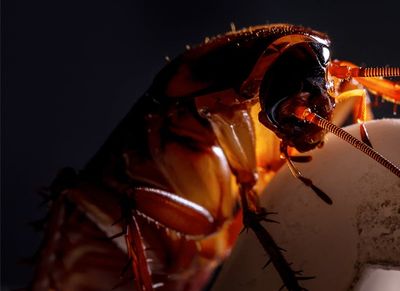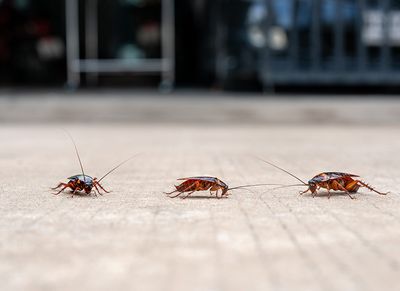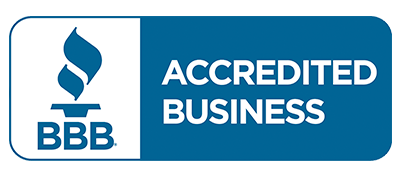What do mosquitoes look like?
A mosquito is a small flying insect with a long mouth called a proboscis. It flies in a hovering pattern as it attempts to land and bite. Once on your skin, you may notice its slender body, thin legs, and narrow wings. You may also notice the abdomen of the insect lifts and swell as it fills with blood. There are many species and their visual appearance varies. Widely considered the most dangerous mosquitoes, the Aedes species has black banding to help you identify it.
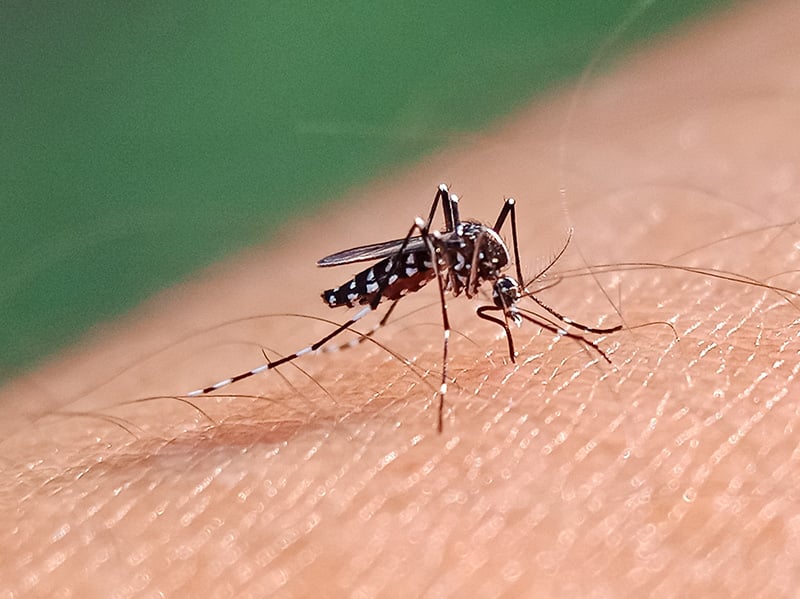
When are mosquitoes most active?
Do all mosquitoes bite?
No. Only female mosquitoes bite. They need protein to produce eggs. They must use their straw-like mouthparts to draw blood, which has the protein they need.
What do mosquitoes eat?
It is a common misunderstanding that mosquitoes survive on blood. This is not the case. Both males and females survive on nectar and plant sap, two energy-rich food sources found in nature. Only the female will search for a blood meal, and as we pointed out, she needs that special meal to produce eggs.
Are mosquitoes dangerous?
Generally, no. You can get lots of mosquito bites and never get sick, as you may have noticed. Mosquito bites are common in Louisiana. Here are a few reasons why you don't get sick.
- There are many species of mosquitoes, and some do not transmit diseases.
- Mosquitoes aren't born with transmittable diseases. They pick them up when they feed.
- Mosquito bites often come from newly hatched mosquitoes living in landscaping and other hiding places. A female lays a hundred eggs at a time. Initial bites are annoying but not dangerous.
The concern with mosquito bites is that certain species can pick up diseases from animals and other humans and spread them. Each year, West Nile Virus (WNV) presents the greatest risk as it is found in local animal populations. There are also many instances of Eastern equine encephalitis (EEE). Both of these viruses are potentially deadly, but the risk is extremely low.
There is a greater danger from mosquito viruses that are not found in local animal populations. Malaria, Zika virus, Chikungunya, dengue fever, yellow fever, and other dangerous diseases are a threat abroad and can affect U.S. residents when they travel outside the country.
What attracts mosquitoes?
There are many misunderstandings about why we have mosquitoes in our yards. You might think mosquitoes go from yard to yard in search of someone to bite, but this is not the case. They don't typically travel more than a few hundred feet. You might think that they're lured into your yard when you go outdoors. While it is possible, it is not likely. Mosquitoes can't see you from a distance. They have poor eyesight. But they may come onto your property if you have a large gathering. They can sense the carbon dioxide emissions. Most of the time, they enter your yard when you're not out there. Here are some reasons why:
- Mosquitoes are drawn to lawns with lots of weeds, tall grass, and other landscape that offers shade from the sun.
- Mosquitoes are drawn to homes with standing or stagnant water.
- Mosquitoes are drawn to yard debris as it provides shelter from the wind.
If you address the conditions that attract mosquitoes to your yard, you may reduce mosquito populations naturally.
Where do mosquitoes lay eggs?
We get this question a lot. It is a very important question to answer because it can help you reduce mosquitoes on your property.
Female mosquitoes lay their eggs a hundred at a time in stagnant or standing water. Removing water resources may significantly reduce the mosquito population in your yard. You can also dump water out to stop mosquito development.
- The female lays a hundred eggs in an inch or more of water.
- The eggs hatch and larvae come out. These are called wrigglers because they look like little wriggling worms. Pouring water onto the ground will dry the larvae and destroy them.
- The larvae grow into pupae (called tumblers), cocoon themselves, and emerge as flying adults. At any point, you can pour the water out and destroy them.
Is controlling moisture the best solution for mosquito control? No. It isn't a complete solution on its own but it will certainly help!
How do you get rid of mosquitoes?
With Anti-Pest, you're not just getting a one-time solution. We offer effective mosquito control in Shreveport, Bossier City, and throughout Bossier, Caddo, and DeSoto Parishes, all year long. Our year-round mosquito treatments not only target adult mosquitoes but also disrupt the mosquito breeding process, providing you with a continuous shield against these pesky insects.
What is the best prevention for mosquitoes?
In addition to signing up for year-round mosquito control, we recommend making your property less appealing to mosquitoes. Try these prevention tips:
- Mow your lawn every week.
- Trim bushes, shrubs, and other landscaping to increase airflow.
- Clean out gutters.
- Refresh that water in bird baths and other outdoor water features.
- Empty planters, pots, and other items that collect rainwater.

Testimonials


Our Services

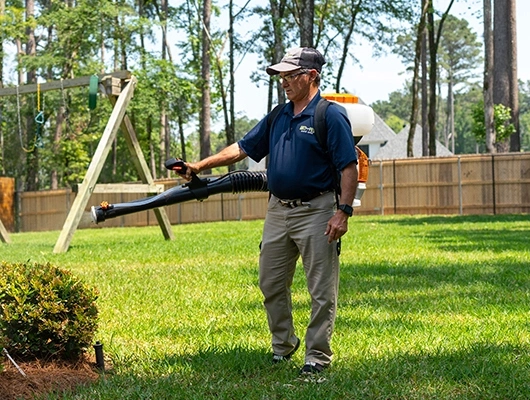
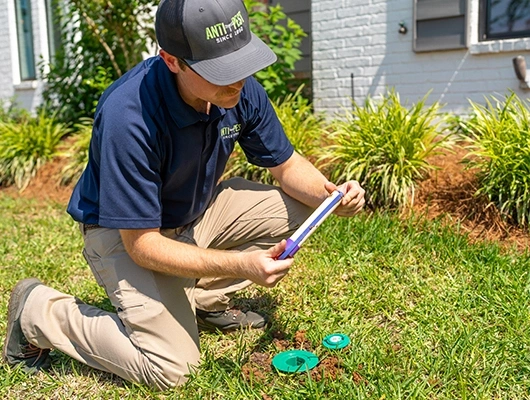

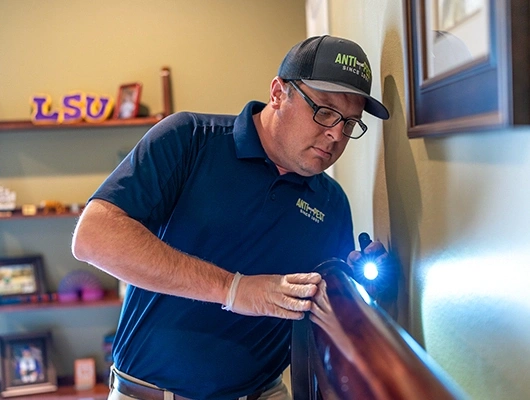
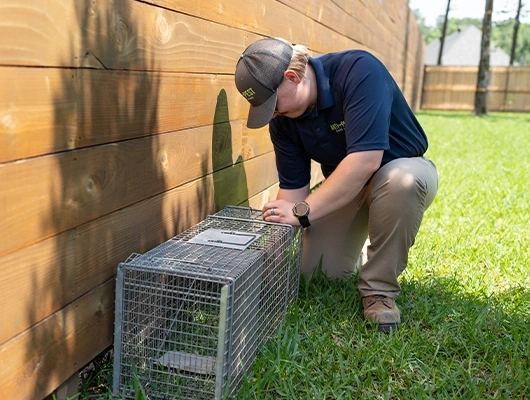
News, Blogs, & Articles
Anti-Pest Blog
